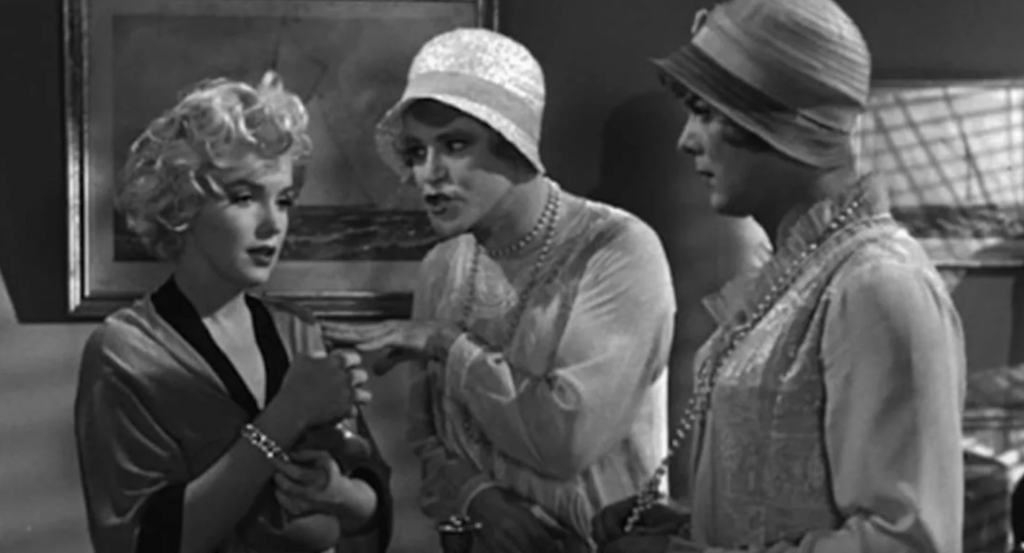
“Nobody’s Perfect”:
The Legacy of Some Like It Hot
Some Like It Hot (1959) is a deeply silly movie whose legacy is twofold: it is a brilliant comedy and it has one of those plot structures so elegant that it became a story archetype of its own. Think about the number of movies and television episodes whose premise is this:
Main character witnesses or commits a crime and then hides out in an unexpected place so that fish-out-of-water hijinks commence.
The person in disguise trope obviously predates Some Like It Hot by millennia. There are examples in stories, religion, and folklore across all human experience. Billy Wilder’s and I.A.L. Diamond’s great idea was that their characters Joe and Jerry are not in disguise to teach a life lesson. They are broke musicians in Chicago who witness a gangland massacre and then impersonate women to join an all-female* band bound for Florida so they can both make money and avoid being murdered. Their behavior is self-serving and their lives become complicated as they value gratification over self-preservation. Joe, in disguise as Josephine the saxophone player, lends a sympathetic ear to singer Sugar… and then uses that information to his advantage when he attempts to woo Sugar in his second disguise of trust fund baby Shell Oil Junior. Jerry is angry that Joe will blow their cover… until Jerry is wooed by a wealthy old man and sees a way to make bank with a quick divorce.
The premise lets Some Like It Hot throw jokes at the wall to see what sticks. There are simple physical gags, such as a padded bra being off-kilter. There are highbrow gags, such as the meta-joke of Tony Curtis’ Shell Oil being an impression of Cary Grant (who himself used a stage name and whose accent fluctuated over the course of his career). The movie inverts expectations when the women are revealed to love drinking and screwing around as much as men, and it uses Sugar’s alcoholism as a springboard to temptation for Joe while still showing Sugar as a complete character in her own right. Obviously Sugar is put through the ringer over the course of the film by the machinations of Joe. I feel that the film’s one unearned moment is her choosing to be with Joe after his ruse is revealed.
I think Some Like It Hot enjoys the longevity it does despite comedy being the genre most tied to a specific moment in time because there is a universality to its premise. Presenting as a women is not directly used as a joke, either. Joe and Jerry dressed as women allows their characters to see women in a way that they normally couldn’t, but their subsequent behavior makes us root for their discovery even as we hope they succeed.
This high-wire act works in Some Like It Hot. But unlike other influential movies, Some Like It Hot doesn’t have a lot of great imitators. Too often, films use part of the formula (such as drag) but discard the rest (such as fully realized characters or jokes or insight).
Descendents
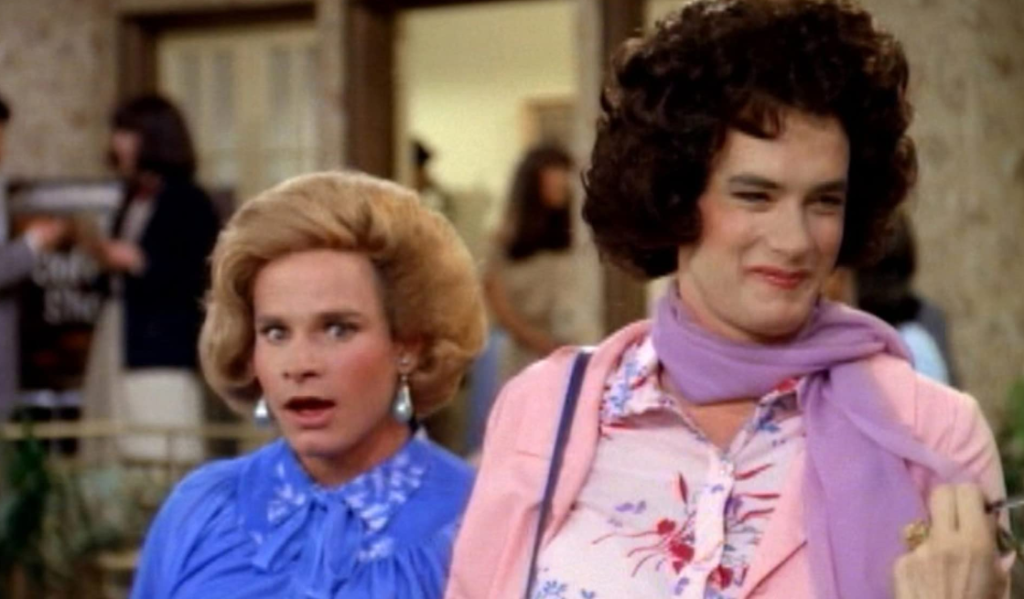
Bosom Buddies (1980–1982)
Two men pose as women so they can get an apartment in a rent-controlled (and women-only) building. They then must balance their lives as women with their desires as men. This is as direct an homage to Some Like It Hot as you will find. As a sitcom, the premise is stretched thin across 37 episodes to the point that they basically nix the drag aspect after the first season. But the cast is quite charming: you could do far worse with a comedy cast than Tom Hanks, Donna Dixon, Peter Scolari, Holland Taylor, and Wendie Jo Sperber.
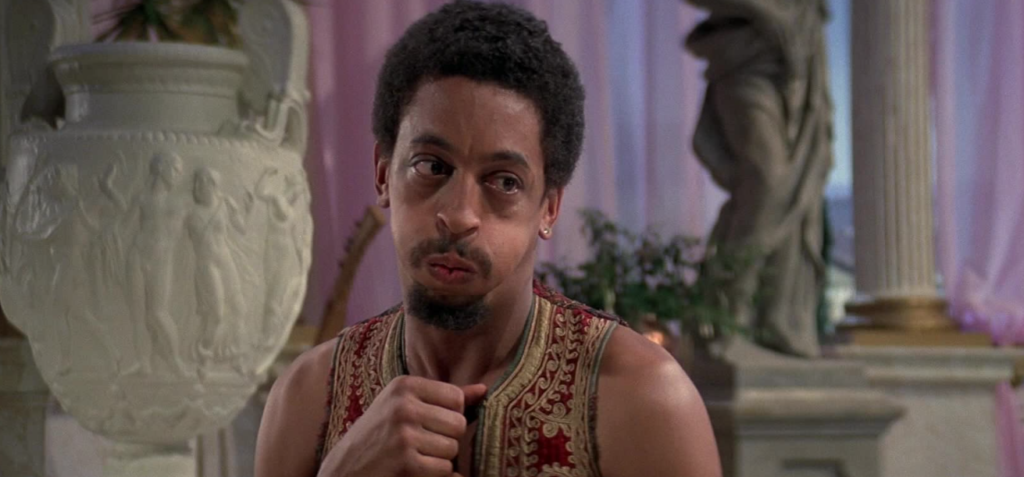
History of the World, Part I (1981)
During the Roman section of the film, a stand-up philosopher and a dancer embarrass the emperor and are sentenced to death. They escape and pose as eunuchs, but are soon discovered for reasons. I bring up Mel Brooks’ scattershot comedy both because its sequel just released and because it is an example of half-assing the premise. A full-length story about Gregory Hines and Mel Brooks posing as eunuchs in Dom DeLuise’s palace could be very funny, but settling for a quick erection joke wastes an opportunity.
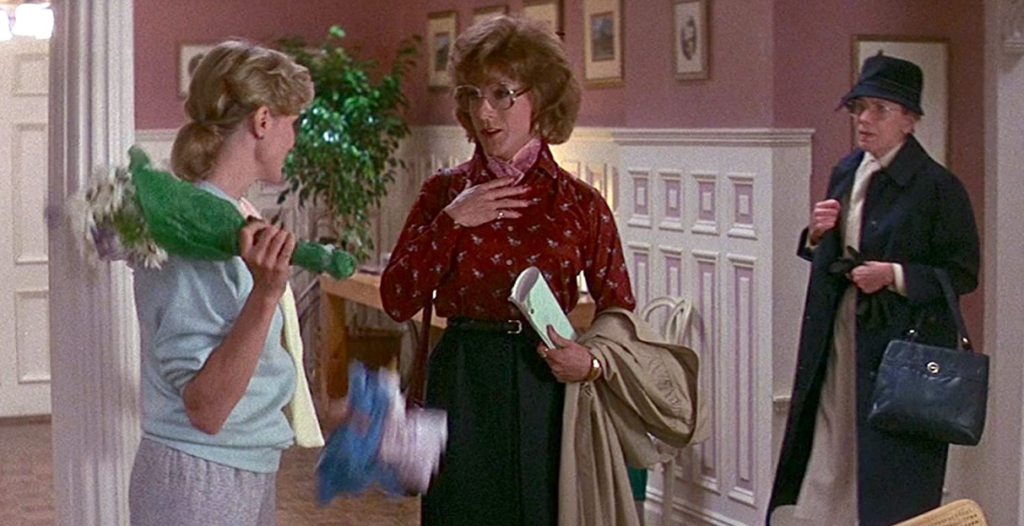
Tootsie (1982)
I find myself in the minority as a writer who does not like Tootsie. I think it has a good supporting cast and a great director who make up for a deeply unlikeable lead actor and character.
Michael Dorsey is an actor who can’t get jobs because of his prickly reputation. He pretends to be a woman named Dorothy to audition for a role on a soap opera and quickly becomes a star. He maintains his ruse while avoiding the advances of an older actor, and he finds himself falling for his female costars.
I do not like Tootsie because Michael is too mean-spirited. The character needs to be somewhat likeable. He is manipulative by using information gained as Dorothy to make passes at his costars when he is Michael. His realizations at the end of the film feel unearned, and poking fun at soap operas is so hackneyed.
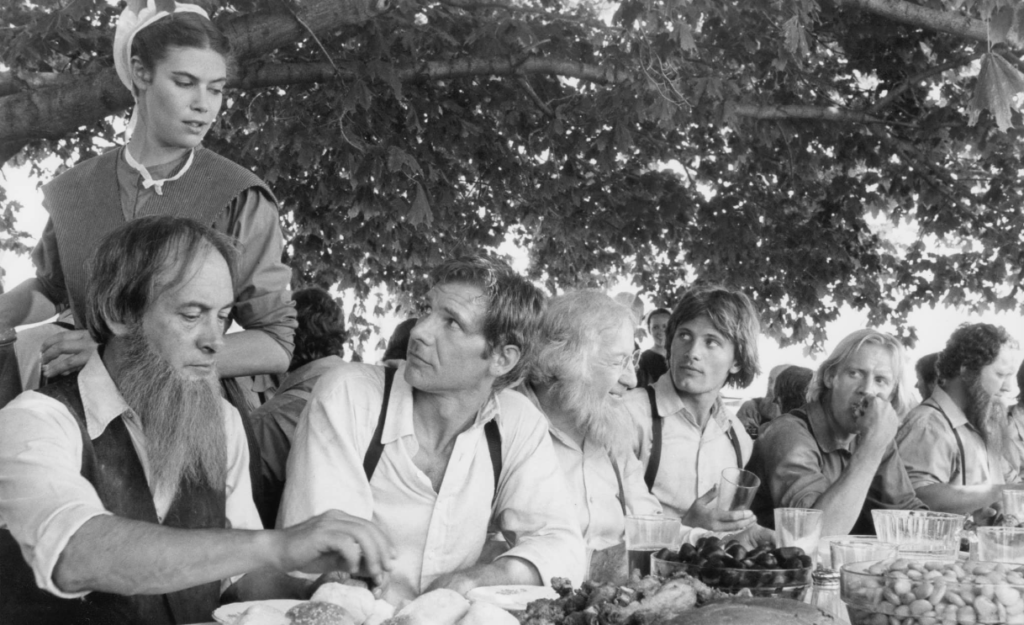
Witness (1985)
I bring up the brilliant Peter Weir thriller Witness not as an explicit Some Like It Hot homage, but to emphasize the universality of the premise. Witness has a Philadelphia homicide detective hide among an Amish community to avoid detection by corrupt peers and to protect Samuel, a young boy who witnessed a murder at a Philadelphia train station while traveling home with his mother.
If you’ve not seen this movie or were turned off by its legacy (the mostly-good Kingpin (1996) and the turrible For Richer or Poorer (1997)), you should give it a chance, as it is one of the great crime thrillers of a decade particularly known for its crime thrillers.
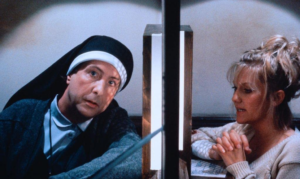
Nuns on the Run (1990)
A couple of gangsters screw up a robbery and pose as nuns to avoid capture. Robbie Coltrane, Eric Idle, and Camille Coduri (Rose Tyler’s mom on Doctor Who) make for a good cast but your love of nun jokes and Eric Idle’s falsetto will determine whether you can make it through this one.

Sister Act (1992)
Perhaps the best Some Like It Hot imitator, Sister Act melds the high-comedy premise of Some Like It Hot with a rebel-versus-the-establishment vibe akin to Footloose (1984) or Stripes (1981). Deloris is a lounge singer who witnesses a murder and is placed in a nunnery in witness protection. The parish priest and mother superior know this but the rest of the nuns think that Deloris is a committed nun. Deloris chafes at the requirements of a nun’s life and slowly wins over the hearts of those around her. She adds some razzle dazzle to the choir while avoiding discovery by the mob.
Whoopie Goldberg is great in this, as are Dame Maggie Smith, Bill Nunn, Kathy Najimy, and Wendy Makkena. Sister Act spawned a sequel (Sister Act 2: Back in the Habit) directed by legend Bill Duke, but it is not as good as the first film.
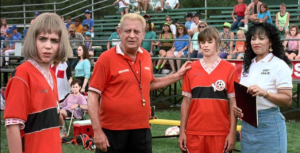
Ladybugs (1992)
Woof. A guy lies to his boss in an effort to get a promotion. He coaches the women’s soccer team on which he boss’s daughter plays. However, the guy knows nothing about soccer, so he convinces his ex-girlfriend’s son to pose as a girl to play on the team. The movie hits all of the usual beats (drag character likes a female character but can’t reveal his identity; the scheme is entirely selfish; the reveal at the end causes a positive result rather than the punishment one expects) but is quite bad. Rodney Dangerfield mugs his way through the movie and the stakes are too low to care about what happens.
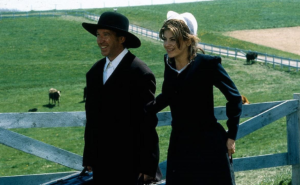
For Richer or Poorer (1997)
Scraping the bottom of the barrel, this Kirstie Alley and Tim Allen comedy has a rich couple avoiding tax fraud by posing as an Amish couple. Where Witness is an even-handed reflection on the strength of community, For Richer or Poorer has its impostors constantly disgusted by the things that poor people do or trying and failing to integrate into the community.
The bones of a functional script may have been here. I see how the fish-out-of-water premise is used to salvage the couple’s marriage and teach them valuable life lessons, but I think the movie is grossly miscast, and the characters were wrongly blamed for the tax fraud. The result is an episode of Paris Hilton’s The Simple Life stapled onto a maudlin romantic comedy.
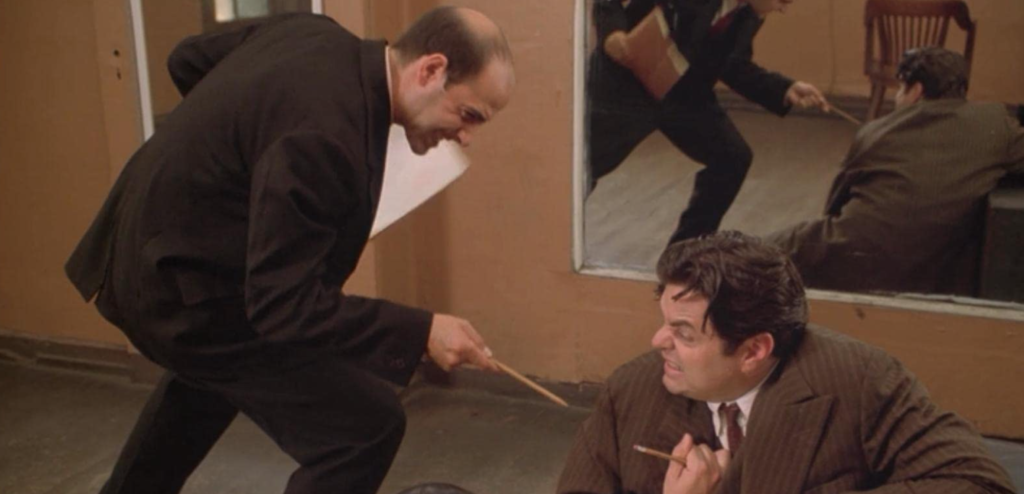
The Impostors (1998)
This comedy written / directed by / produced by / starring Stanley Tucci uses the Some Like It Hot premise but is more an homage to vaudeville and early talkies comedy. Two broke actors stow away on a ship after a fight with a famous actor. This is a fairly charming piece of fluff, mostly propped up by the very silly characters played by Tucci and Oliver Platt. They lack the cunning of the musicians in Some Like It Hot and mostly succeed because the people around them are also buffoons (Alfred Molina is pure ham and I am here for it). The cast list is super deep for this silly movie and there are worse ways to spend 90+ minutes.
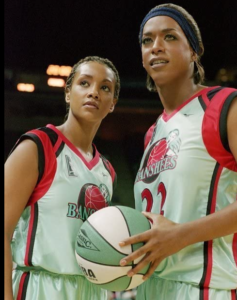
Juwanna Mann (2002)
An NBA (Is it UBA? I can’t remember) player scrubs out of of the league. Rather than try out for one of the countless professional basketball leagues around the world, he decides to pose as a woman and try out for a WNBA (WUBA?) team instead. While on the team, he falls for another player but doesn’t want to risk blowing his cover. He also becomes a slightly better person, and after his disguise is revealed, gets everything he wanted.
The problem with sports comedies is that it is really hard to fake athletic ability, whereas singing can be dubbed by a professional and one’s hands can be obscured while playing an instrument. This is a fault of direction more than performance: there are professional athletes in the cast and the professional actors are game enough to try, but without some sharp editing and stunt doubles, it is a slog. Miguel Nunez does not look convincing as a basketball player, and the jokes don’t work either.

Boat Trip (2003)
The formula isn’t difficult. The main characters willingly impersonate others for their own benefit and use that position to their advantage while also learning a little about those they impersonate. Boat Trip is a misfire from minute one and gets worse from there. The main characters want to take a cruise to meet women but they offend the travel agent, who puts them on a gay cruise as punishment. This is just a cruise, folks: there are no penalties for the characters to be straight. Nor does the premise allow for the very idea that someone might like men and women. So there is no reason that Cuba Gooding would continue to pose as gay on the cruise. There are no stakes, the jokes are mostly gay-panic, and this movie is one of the worst that I’ve ever seen in a theater (in my defense, I was a movie critic at the time; otherwise I never would have seen this).
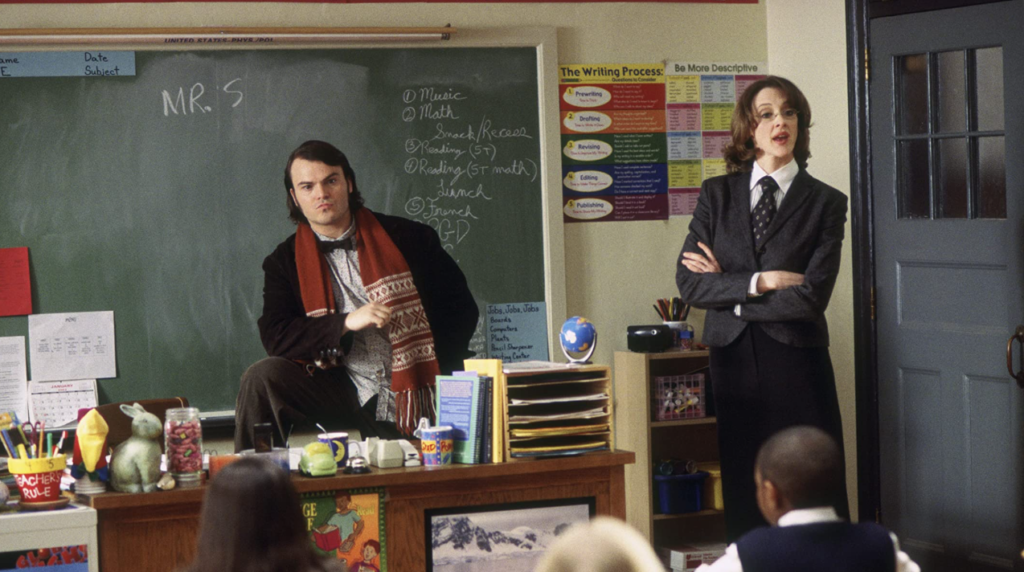
School of Rock (2003)
Here is another charmer. Broke musician Dewey answers a call meant for his roommate Ned who is a substitute teacher. Dewey impersonates Ned as a substitute to make a quick paycheck. Finding himself wholly unprepared for the job, he gives up on all pretense of instruction and leads his students in a “semester project” called Rock Band. There is an upcoming Battle of the Bands and Dewey sees these kids as a gimmick through which he can enter and win the prize money. His grift works beautifully as the kids are given roles associated with a touring band, from costumes to manager to performers.
Dewey’s ruse is guaranteed to fail. It is just a question of whether he can get what he wants first. Mike White’s script is very clever in how it sets obstacles in Dewey’s way, such as a parent-teacher conference, visits by the principal, and Dewey’s disinterest in anything outside the pages of Rolling Stone.
The cast is full of charming kid actors who have great comedic chemistry with Jack Black, and Joan Cusack puts in another great supporting comedic performance as the principal. I don’t really care what age you are or what kind of movies you prefer, you’ll find yourself charmed by this one.
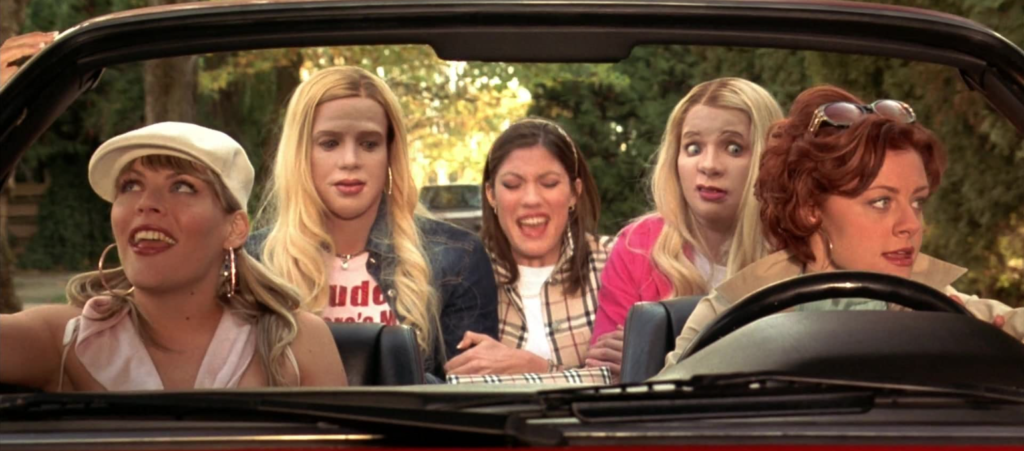
White Chicks (2004)
I have a soft spot for White Chicks. Two FBI agents impersonate rich heiresses to foil a kidnapping attempt. Over the long weekend in the Hamptons, the heiresses’ friends find that they like these new versions of the heiresses better than the actual ones. Following the classic formula, one of the leads falls in love with a woman at the risk of exposing their ruse, and the other is wooed by an aggressive rich guy. The film adds a rocky marriage to its one lead so that it can skirt the famous ending of Some Like It Hot by having the character reconcile with his wife while the rich guy meets (several) new conquests.
The movie holds up better than many of the list because of the very committed performances by the Shawn and Marlon Wayans and most of its jokes are directed at the shallow plights of the rich (reminder that you don’t punch down). The Mission Impossible-style masks worn by the Wayans Bros. are both absurd and quite incredible. Maybe there is a deeper insight here about how the individual is less important than their trappings of wealth, but what you’ll likely remember is Terry Crews singing Vanessa Carlton and Marlon chewing his toenail at the French restaurant.
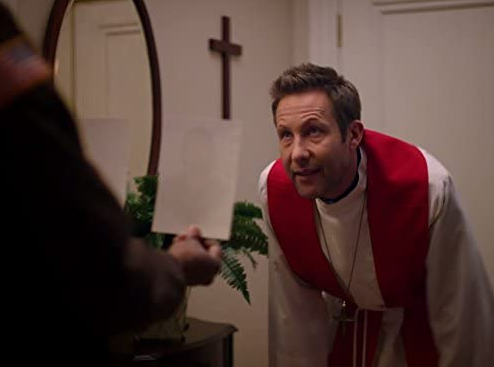
Impastor (2015-2016)
A gambler flees to avoid loan sharks. He poses as a Lutheran pastor in a small town to avoid detection, and must convincingly play a good person to his congregation while avoiding the bad behaviors that led him to this point.
Another sitcom making use of the basic premise, Impastor feels like one of those neologism gifts from god. I’d bet money that someone thought of the name and everything else sprang from there.
* For the purposes of this essay, we are using male and female as they are used in the film Some Like It Hot. Some Like It Hot gives a light thought to gender issues but not to gender identity. Osgood is into Jerry/Daphne regardless of their gender identity but that is really the only place where a nonbinary identity is mentioned.
The rest of the movies in the list may be more or less careful (usually less) about the characters and what their disguises mean to themselves and those around them. ome Like It Hot’s story archetype can be a minefield.